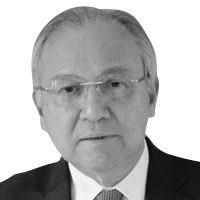Why Vietnam’s economy is surging ahead

In 1986, Vietnam decided to launch economic and political reforms that would enable the country to transform from a centralized economy into a socialist-oriented market economy. Trade liberalization was vigorously pursued while domestic reforms that include deregulation as well as lowered cost of doing business were implemented. More importantly however, the Vietnamese government decided to open up its economy to foreign investors, creating the Law on Foreign Investment that paved the way for foreign companies to enter Vietnam.
The succeeding years saw Vietnam revising its foreign investment law several times to become more investor friendly. At the same time, more market friendly policies were also instituted. From being one of the poorest countries over three decades ago – in the aftermath of the Vietnam War that lasted for 20 years from 1955 to 1975 – Vietnam has emerged as one of the fastest growing economies in Asia, registering a 6.8 percent GDP growth in 2017 and 7.1 percent in 2018, its highest in over a decade.
Vietnam is a single-party Socialist republic with no separation of powers, with the Communist Party playing a central role. Thus, its government can make decisions quickly without long drawn-out debates over legislation, which is one of the reasons why its economy has surged in an impressive manner – with growth projected at 6.6-6.8 percent.
Vietnam’s government has adopted outward looking economic policies and is committed to private-sector led growth that has made the business climate very attractive to investors. The irony of it all is that the economy of a Socialist country like Vietnam is even more open and more progressive than a democratic country like the Philippines, where almost every decision requires lengthy debates, back-and-forth arguments and compromises, even if the legislation is so important that it will have a great impact on the economy.
For decades now, business groups have been urging the Philippine government to amend the very closed, overly protectionist economic provisions in the 1987 Constitution to make the country more attractive to investors. As early as 2001, there was already a strong clamor to liberalize many sectors of the economy to make the country become more globally competitive. Let’s face it, the outdated provisions – like Article 16, Section 11 that limits foreign ownership of media – are not encouraging to potential investors. Clearly this is the reason why we have been lagging behind our neighbors like Vietnam whose foreign direct investments continue to be impressive, registering $16.74 billion from January to May 2019 alone.
The trade war between China and the United States is one opportunity where the Philippines could very well attract more American businesses that are pulling out of China due to the tariff wars. But we are already missing the boat as it is. Many American companies are already rethinking their business expansion plans and are coming to us at the Embassy looking for Asian countries to relocate their operations. But sadly, the outdated economic provisions in the 1987 Constitution and many other investment requirements that in our case need legislation which Vietnam seems to be able to immediately act upon – is making them look at our neighbor, whose open and investor-friendly business climate is so encouraging.
The Duterte administration’s program to push amendments to these protectionist provisions is a first step toward the right direction. We have a chance now with President Duterte who is willing to take the bull by the horns, so to speak, and do what is needed to solve problems that are keeping our economy from truly surging.
Take the horrendous traffic in Metro Manila for instance. This is really an emergency situation that is getting worse by the day, and costing the country P5.4 billion a day in terms of lost productivity which is very clear in a study made by the Japan International Cooperation Agency (JICA).
This monstrous congestion is impacting the economy, making people suffer and making them sick due to air pollution from stalled vehicles. In fact, people are literally dying because ambulances transporting patients with medical emergencies are stalled in traffic. As one song goes – they just lie there, and they die there.
Just to be clear – President Duterte did not ask for these emergency powers but if they give it to him, then at least there will be a central person who has the authority to move things quickly. With the president known for having a strong political will, chances are he will be able to speed things up with critical transport infrastructure projects that will hasten progress and bring economic growth in many areas outside of Metro Manila.
A microcosm of what can be done can be seen in the actions of the “total rock star” – as Ambassador Sung Kim described Manila Mayor Isko Moreno.
The minute he stepped into office, he launched a major makeover of Manila and cleaned up the streets, ridding it of vendors that have been clogging the streets and other public places. Things are moving well in the city of Manila. Can you imagine if this can be done in the entire Metropolis and all over the country?
Unfortunately, we want to have our cake and eat it, too. We want to have a democratic system of government, with a free press and very strong checks and balances. But the biggest downside is that everything is slow moving.
The fact of the matter is, too many cooks spoil the broth. Unfortunately, the broth is already getting spoiled. Very soon, we won’t even have the broth to speak of.
* * *
Email: babeseyeview@gmail.com
- Latest
- Trending
























